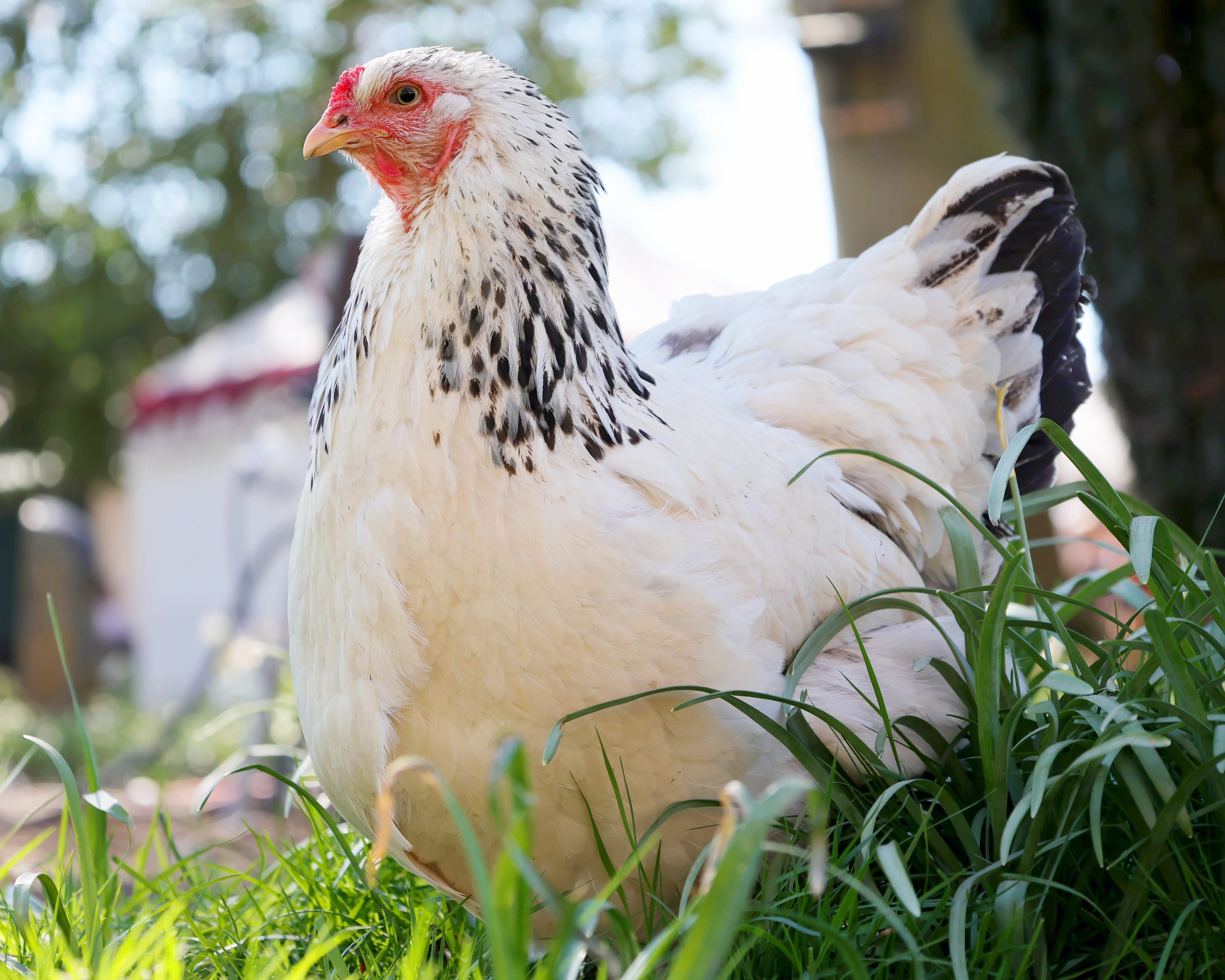Henhouse Trivia


In the early 1700s, farmers found that chickens born in the spring brought better prices than 'old' ones that had gone through the winter. When farmers tried to sell the old birds as 'new spring born,’ buyers complained that they were 'no spring chicken.’ Chickens, by the way, tend to live to be 5-8 years old.

Chickens love to eat worms, bugs, seeds and nuts, grass and yes, even your weeds! It's true there are some plants that aren't good for them to eat, but they typically know how to avoid those toxic plants on their own.

Equipped with a third eyelid, chooks use this transparent and horizontally moving lid to moisten their eyes and protect against other chickens’ pecking.

Of course chickens have wings, but most don’t fly well (and they don’t swim either). They do like to pretend they can when you let them out to range – you will often see them running, jumping and flapping to stretch out their wings in open spaces.

Chickens go through a molt to grow a fresh new set of feathers for the winter. Their first one happens at approximately 18 months. After that, it occurs once a year, generally during cooler fall temperatures. Be prepared for your chickens to look pretty 'interesting' during that time!

In hot weather, a chicken can drink up to 1 liter of water per day. Chickens dissipate excess heat from their combs, wattles, beaks and feet. Shallow pans of cool water for them to stand in on hot days, as well as cold treats like watermelon, are very helpful.

Chicken droppings help to make great fertilizer for you gardens and free-ranged chickens lay much healthier eggs. Be sure to fence off any plants that you would prefer them not to munch on!


